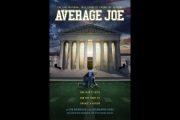
Health Reform: End of the American Revolution? by Dr. Lee Kurisko, St. Paul, Minn.: Alethos Press LLC, 2009, 238 pages, hardcover, $29.95. As patriotic Americans continue to rise up against the coming yoke of ObamaCare, one of the most obvious threats is easily overlooked. That threat comes from the establishment wing of the GOP in the form of possible compromise, alteration, or replacement.
We’ve already had ranking Republicans, such as New Hampshire Senator Judd Gregg (now retired), talk about “restructuring” instead of repeal. The GOP “Pledge to America” starts beautifully with a promise to “honor the Constitution as constructed by its framers” and “particularly the Tenth Amendment,” but sings a different tune when it comes to ObamaCare. It promises not just to repeal the beast but to “replace the government takeover of health care” with such “common sense solutions” as dramatic federal intervention into the insurance market. Let’s also not forget that some of these same self-proclaimed champions of conservatism were just a few years ago voting to support unconstitutional schemes like Bush’s Medicare Prescription Drug Modernization Act and the State Children’s Health Insurance Program.
Remedying this threat requires an understanding of the constitutional limitations upon our government, the philosophy of freedom that forged those limitations, and both the moral and economic consequences of donning the shackles of socialism. That’s exactly what Dr. Lee Kurisko seeks to provide in his recent book, Health Reform: End of the American Revolution?
As a Canadian medical doctor, Dr. Kurisko became extremely frustrated with the regular restrictions and constant failings of the Ministry of Health. In his book, he describes the needless pain and suffering caused by Canada’s socialist system, which he witnessed firsthand. He recounts his difficulties as medical director of Ontario’s Thunder Bay Hospital in trying to procure necessary equipment. He recalls having to triage the sick for no other reason than the government’s rationing of resources. He exposes the long waits that caused unnecessary complications or death.
He also describes his examination of the practical, economic, and moral dimensions of healthcare that led him to the conclusion that only a free market could meet the needs of the public. Enamored of our unique history as the only nation founded upon what he calls “liberty rights,” he eventually relocated to the United States, where he observed the stark and positive contrast between his experiences practicing medicine here and his experiences in Canada. Here, less restrictions and more freedom meant that he could actually treat patients by seeing them in a timely fashion, have the right medical imaging equipment on hand, and hire the appropriate support staff. However, he was also dismayed by the lack of understanding many Americans have regarding our special circumstances and the tightening grasp of government control over our medical system even before ObamaCare. It drove him to write this book.
Kurisko does not limit his analysis just to the United States and Canada. He also draws the reader’s attention to the utter failures of command economies, such as what the world witnessed under the Soviet Union. If full-blown socialism is so bad, he asks, then why would we think that partial socialism is so good?
In contrast, Kurisko illustrates the tremendous prosperity created by freer markets. He explains how economic freedom made America the most prosperous nation in history and how devices such as MRI and CT scanners have only been made available to the rest of the world as a result of that prosperity. He takes the discussion beyond the realm of healthcare and borrows examples from other industries. For instance, computers were once remarkably expensive tools that filled an entire room. Today, compact and advanced models are owned by almost every household. This isn’t because of any Ministry of Computers but the result of market forces. If free-market enterprise is so good for manufacturing or consumer electronics, he asks, then why would we think it is so bad for healthcare?
The good doctor rightly refutes popular claims that free markets have failed in providing healthcare. He explains the slippery cycle of government intervention that has been drawing us deeper and deeper into the clutches of centralized control. Not unlike the classic example of the mafia breaking a window and then offering protection for a fee, government intrusions into the market have continually caused problems to which they’ve offered more intrusion as the answer. He tracks the history of this back through COBRA, HMOs, Medicare, and the employer system that rose in response to wage and price controls, demonstrating the resulting price inflations and access limitations that, with propaganda, kept “government assistance” in demand.
Going beyond just the symptoms of the systems, Kurisko wades into the underlying economic theory and explains it clearly. He talks about the chaos of diverse individual wants and needs and the difficulty in meeting that demand. He explains that central planning along fixed budgetary periods could only be effective with perfect information. Not only is it extremely difficult to even approach such a level of information, any prediction is necessarily inflexible in the face of rapid and unforeseen change. He offers a number of examples, including the effect of his own resignation! The closest match between supply and demand will occur under conditions of freedom through a cascade of rational action by individuals and their enterprises. He offers successful examples of this as well, including the high availability of such diverse comestibles as Peking duck and Diet Coke in Manhattan.
Central to the economics is the morality. Rational actors cannot exist without personal responsibility and the mixture of consequences and incentives to act. Dr. Kurisko puts this in terms of rights. He explains the difference between the “liberty rights” that this nation was built upon and the socialist “welfare rights” that have been on the rise. Liberty rights involve protections from arbitrary interference by outside forces in your actions. Welfare rights involve claims upon the time and resources of others, claims that necessarily interfere with those others’ choices. This matter of rights is crucial to the ability of patients to function in an economy, by electing to spend their money and choosing the right provider of service. It is also crucial to the doctors and other professionals seeking to provide those services. As Kurisko explains, providers under a socialist system are in the position of slaves who own neither their time nor skill. They are not slaves to the patients but to the abstracted power of government to which all citizens share the condition of bondage. By contrast, a free society is one that not only protects individual rights but clears the way for the widest distribution of the best possible care. What could be immoral about that?
Overall, Dr. Kurisko’s book offers solid coverage of the economic, moral, and practical aspects of healthcare. Without delving specifically into ObamaCare or getting lost in the minutiae of particular policy, it provides the necessary backbone for why we need to shed the yoke of not only ObamaCare but socialism and central planning in general. Most readers will find a sufficient level of depth and the right amount of relatable humanity in Kurisko’s timely warnings and timeless philosophy.
So, is ObamaCare really the end of the American Revolution? It is certainly a powerful blow to the principles over which it was fought. It is also part of a continuing flurry of combination punches that have been coming at us for decades. Ultimately, the question comes down to our vigilance, which Lee Kurisko hopes to temper with this book.



